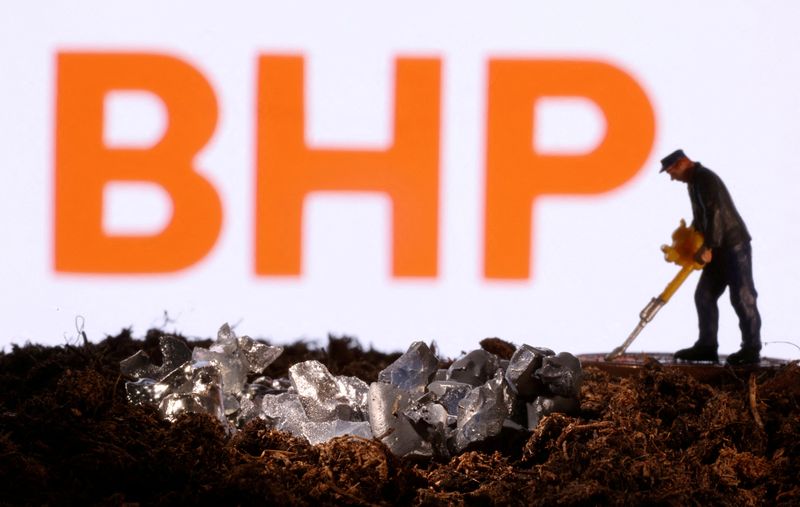
© Reuters. FILE PHOTO: A small toy figure and mineral imitation are seen in front of the BHP logo in this illustration taken November 19, 2021. REUTERS/Dado Ruvic/Illustration
SYDNEY (Reuters) – Australia is set to benefit from the growing interest in environmentally sustainable mining and minerals needed for decarbonisation, the chief of BHP Group (NYSE:)’s nickel operations said.
The U.S. Inflation Reduction Act passed in August, which allows for significant tax credits in the processing of battery cells, and the European Commission’s Battery Recycling initiative are examples of governments’ greater focus on electric vehicle (EV) minerals such as lithium, nickel and , according to Jessica Farrell, Asset President for BHP Nickel West.
“Australian companies are well placed to be a partner of choice, recognising our efforts to address these ethical and environmental concerns, and Australia is a favoured jurisdiction from which to source commodities,” Farrell will say in a speech at an international mining conference in Sydney on Thursday.
A copy of the speech was shared with the media ahead of the event.
The U.S. Inflation Reduction Act links EV tax credits to minerals extracted domestically or from 20 allies, including Australia.
Several American firms, from mining to automobiles, have looked to collaborate with Australian nickel and lithium miners since the act was passed.
BHP, through its Nickel West unit, has the second largest nickel sulphide resource base globally, and has plans to increase its spending on nickel exploration over the next two years.
Nickel West has signed supply agreements with car manufacturers like Tesla (NASDAQ:), Toyota and Ford.
“Electrification of autos is gathering pace and we expect that by 2030, around 60% of all car sales will be electric,” Farrell said.
“Further … we expect that by 2040, 90% of car sales will be electric. The dominant battery chemistry powering this global fleet is expected to rely on nickel,” she added.
Farrell said BHP anticipated demand for nickel in the next 30 years would be 200% to 300% that of the previous 30 years.


Be the first to comment